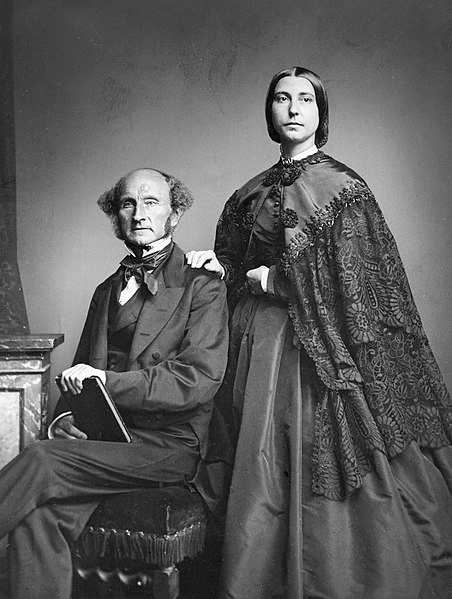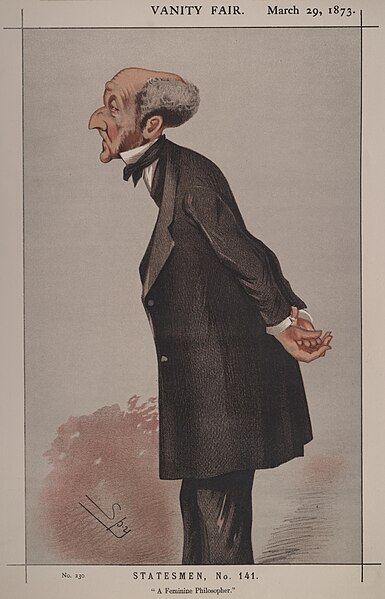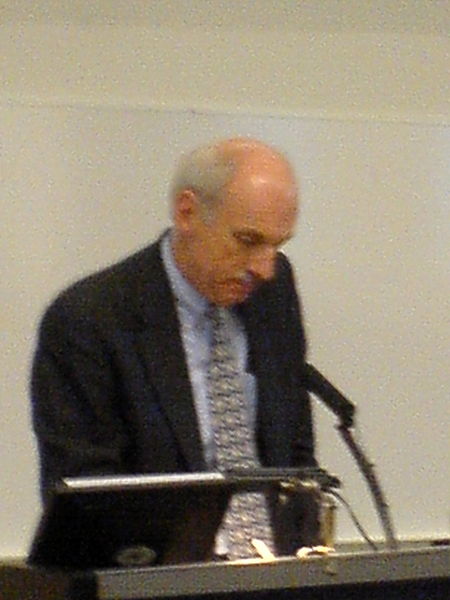John Stuart Mill was an English philosopher, political economist, politician and civil servant. One of the most influential thinkers in the history of liberalism, he contributed widely to social theory, political theory, and political economy. Dubbed "the most influential English-speaking philosopher of the nineteenth century" by the Stanford Encyclopedia of Philosophy, he conceived of liberty as justifying the freedom of the individual in opposition to unlimited state and social control.
1873 portrait by George Frederic Watts
John Stuart Mill and Helen Taylor. Helen was the daughter of Harriet Taylor and collaborated with Mill for fifteen years after her mother's death in 1858.
"A Feminine Philosopher". Caricature by Spy published in Vanity Fair in 1873
"The utilitarian doctrine is, that happiness is desirable, and the only thing desirable, as an end; all other things being only desirable as means to that end." ~ John Stuart Mill, Utilitarianism (1863)
Political economy is a branch of political science and economics studying economic systems and their governance by political systems. Widely studied phenomena within the discipline are systems such as labour markets and financial markets, as well as phenomena such as growth, distribution, inequality, and trade, and how these are shaped by institutions, laws, and government policy. Originating in the 16th century, it is the precursor to the modern discipline of economics. Political economy in its modern form is considered an interdisciplinary field, drawing on theory from both political science and modern economics.
Robert Keohane, international relations theorist
Susan Strange, international relations scholar
Jean-Jacques Rousseau, Discours sur l'oeconomie politique, 1758







